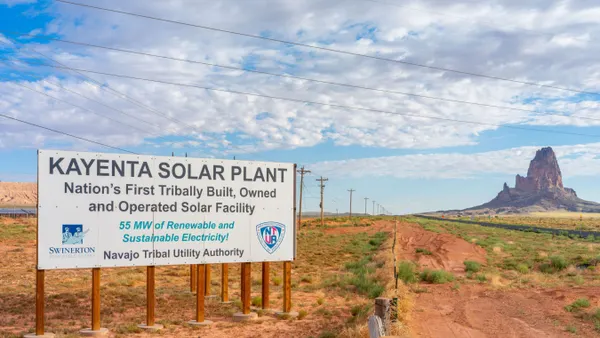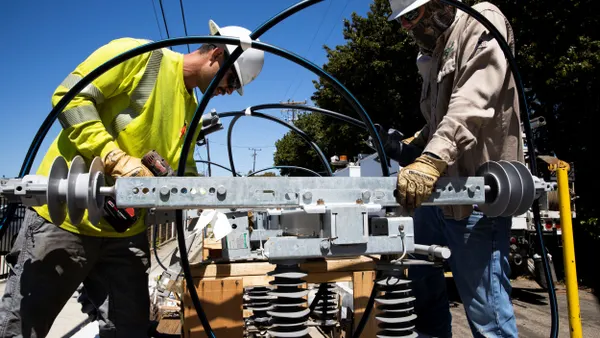Dive Brief:
- Staff at the Maryland Public Services Commission have recommended a broader investigation into microgrid policy rather than approving a pair of projects proposed by Baltimore Gas & Electric (BGE) last year, Microgrid Knowledge reports.
- In December, BGE proposed a pair of microgrids, between 2 MW and 3 MW each, to begin testing concepts in the state. The projects would have powered some public services in Baltimore City and Howard County, at a cost of $16.2 million.
- But staff questioned whether utility ownership of microgrids is legal in Maryland, and called for a wider proceeding to take up those questions. Opponents of the projects say they would have intruded into retail supply markets.
Dive Insight:
Maryland may be preparing for a broad proceeding to consider how the state integrates microgrids and other power technologies. The PSC staff called for a comprehensive look at the projects in "grid of the future proceedings," according to Microgrid Knowledge, and questioned whether the state's legal structure currently allows for BGE to move ahead with its proposals.
The staff submitted a report to the PSC questioning whether “a utility-owned microgrid is legal, let alone that it is of sufficient public benefit to warrant ratepayer financing.”
BGE in December floated the idea for a pair of microgrids at Edmondson Village in Baltimore City and at the Kings Contrivance Village Center in Howard County. Facilities such as grocery stores, pharmacies, clinics, gas stations and public buildings would have been powered in order to use them for emergency coordination and shelters during a widespread outage.
“Microgrids are designed to strengthen the reliability and resiliency of the electric grid and provide
geographic locations that can maintain power and provide vital community services to our customers when a region in our service territory experiences widespread outages,” Rob Biagiotti, BGE vice president and chief customer officer, said in a statement.
Microgrid Knowledge reports that a group headed by NRG Energy and Sun Edison opposed BGE's microgrid proposals, arguing that they would upset existing competitive retail markets, as microgrid customers and those shopping for power tend to overlap.
While a group called Microgrid Resources Coalition took no position on the specific proposals, they did point out that a focus on resiliency can undercut microgrids' broader impacts.
"While resiliency is a primary benefit provided by microgrids, the MRC believes that an exclusive focus on this benefit actually limits the ability of microgrids to achieve resiliency goals and fails to recognize
that a microgrid undertaken solely for resiliency purposes is unlikely to be self-funding in any
meaningful way," the group said in its comments.
The PSC is set rule on the utility's proposal July 30. Hearings are slated to begin June 9-10.














